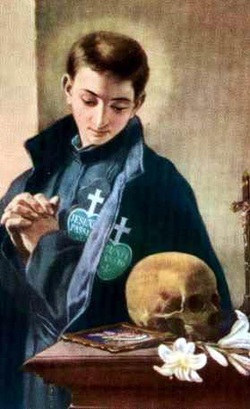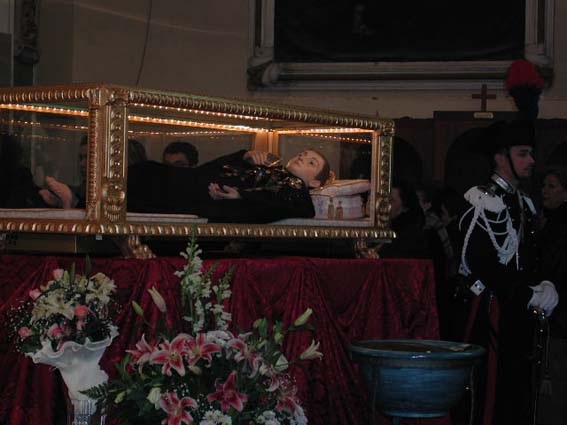
In the novitiate, day by day he became conspicuous for regular observance and for the exercise of all the virtues, and in a short time he came to be considered a pattern of perfect holiness, not only by his companions and his seniors, but also beyond the confines of the monastery; he became a sweet odour in Christ in every place. An assiduous devotee of the Lord's Passion, he spent days and nights meditating upon it. He was drawn by unbelievable zeal towards the Holy Eucharist, a memorial of that Passion; and when he nourished himself with it, he burned with seraphic ardour. There was nothing more noticeable than his filial piety towards the great Mother of God. He was accustomed to pay her honour for every type of devotion, but especially to contemplate her stricken and afflicted by the sufferings of Jesus, with such sorrow that he shed floods of tears. The sorrowful Virgin was, as it were, the whole reason of his being, and the teacher of the holiness that he had acquired. As a result all his associates shared the one opinion that this servant of God had been inspired from on high so that the cult of St. Mary of Sorrows through his example might receive a great increase.






